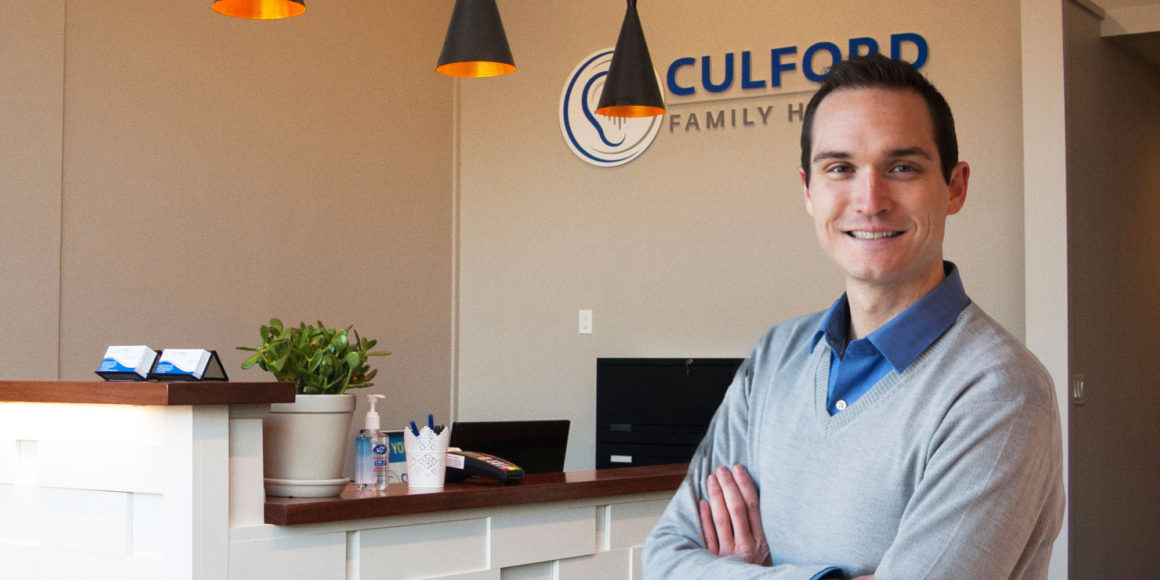Thinking about a hearing test but unsure of what to expect? You are in for a pleasant experience that is interesting, painless, and informative. Hearing assessments are most often booked when people are experiencing difficulties with their hearing but it is just as important to have a hearing assessment prior to difficulties as this establishes a baseline.
Once you arrive for your visit, the clinician will sit down with you to discuss your hearing history. This case history consists of several questions that investigate what may have influenced or contributed to your current hearing status. If you are having difficulty with your hearing, it is helpful to speak of certain instances or give personal examples. By knowing where your difficulties lie, goals can be established to help address those difficulties.
Following the case history, a hearing assessment will be conducted. The first step includes examining the ear canal with an otoscope to determine the physical condition of the ear canal and eardrum, and to look for wax. After the visual inspection, an automated test, typically called a “tymp test” or “pressure test”, is performed. A soft tip is inserted into the ear which briefly inserts air pressure into the ear canal. This will show how well the eardrum and middle ear bones are moving.
The main part of the hearing assessment takes place in a sound booth. It is here where we find out how well you are hearing by measuring the softest sounds you can hear, referred to as your hearing thresholds which are plotted on a graph called an audiogram. Specialized earphones are placed into both ears. Different frequencies, or pitches, will be presented as soft “beeps” or sounds. When you hear a “beep” you press a button to indicate to the clinician that you heard it. Following the beeps, speech testing is performed where you repeat a series of words.
Once all tests are completed the clinician will review the results with you. If a hearing loss is found, recommendations will be discussed based on these results. If hearing aids are recommended, the clinician will explain what options are best for you and answer any questions you may have.
The hearing assessment and discussion of results takes approximately one hour. Most people find it helpful to bring a family member, spouse, or friend with them to the appointment. You will typically get more out of the visit if someone close to you can share in the experience. It also provides added insight to learn about your hearing abilities from someone close to you.
If you have concerns about your hearing it is important to address it sooner rather than later. The earlier hearing loss is identified and corrected, the earlier you can rejoin the conversation and improve your quality of life. Do not hesitate to book an appointment with an Audiologist to have your hearing assessed, you will be glad you did!


